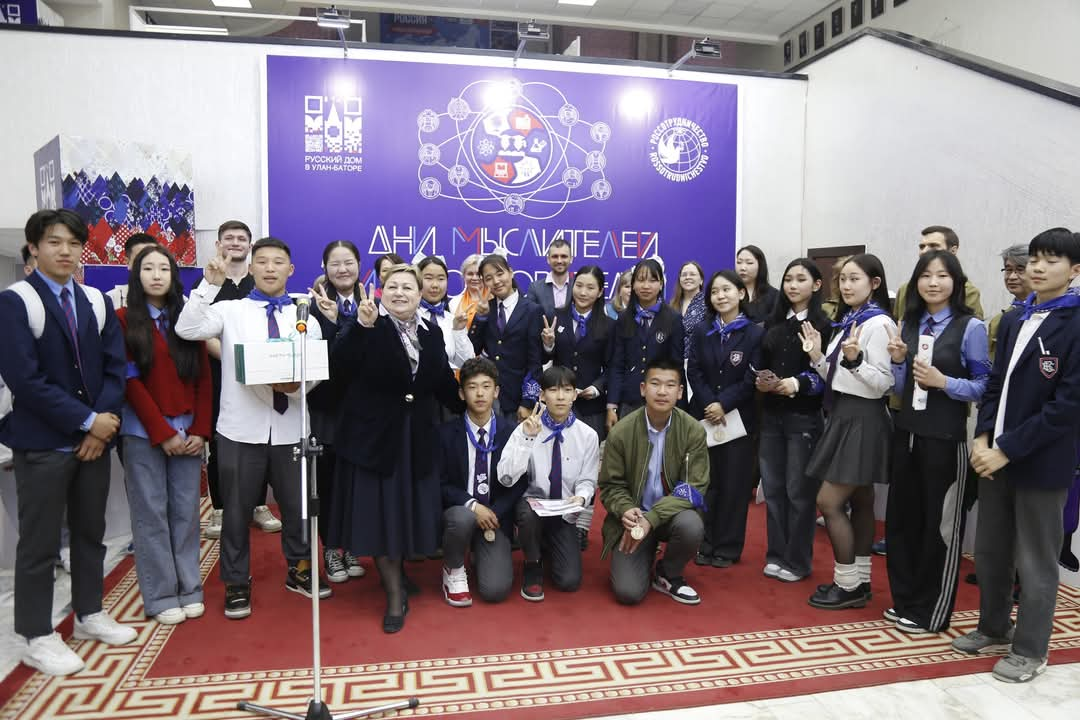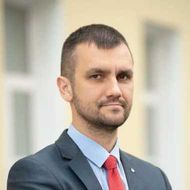Interactive Workshops, Thematic Quizzes, and New Partnerships: HSE Delegation Visits Mongolia

Representatives of HSE University visited the Mongolian capital, Ulaanbaatar. The visit focused on developing cooperation in the fields of education and science, as well as introducing Mongolian school pupils and students to the educational opportunities available at one of Russia’s leading universities.
As part of their trip, HSE representatives visited four of Mongolia’s top universities: the Mongolian National University of Arts and Culture (MNUAC), the Mongolian University of Science and Technology (MUST), the National University of Mongolia (NUM), and the University of Finance and Economics (UFE).
Each university hosted HSE presentations showcasing educational opportunities for international students, including master’s programmes taught in English. Students took part in quizzes and received commemorative gifts from HSE. The members of the Russian delegation had talks with university leadership and discussed prospects for academic and scientific collaboration, as well as the implementation of joint educational initiatives, including double degree programmes.
The visit included meetings with school pupils. HSE representatives visited Russian–Mongolian Secondary School No. 3 and the Ulaanbaatar branch of the Plekhanov Russian University of Economics. Pupils received information about university admission opportunities, took part in interactive workshops and themed quizzes, and also participated in the MOM Junior Olympiad. More than 230 pupils competed in intellectual contests covering a range of subjects, from English language and literature to mathematics and biology.
Additionally, the HSE delegation and school administrations discussed hosting the main MOM Olympiad in Mongolia in November 2025—a potentially significant step in expanding academic cooperation.
A key highlight of the visit was HSE’s participation in the educational event ‘Days of Thinkers and Inspirers,’ organised by the Russian House in Ulaanbaatar. Over 300 pupils—from both Russian-language and Mongolian-language schools—attended educational and creative sessions, learned more about studying in Russia, and took part in workshops, competitions, and quizzes.

Alexander Deev
‘Despite the tight schedule, the trip to Ulaanbaatar turned out to be both eventful and productive,’ said Alexander Deev, Director of International Talent Development. ‘Over the course of just a few days, we managed to organise a wide range of activities, establish new partnerships, and once again witness the talent and motivation of Mongolian school pupils and students. We are confident that this will not be our last visit to this wonderful country. More meetings, olympiads, and successful HSE admissions stories lie ahead.’
One of the most heart-warming moments of the visit was a meeting with HSE alumni currently living in Mongolia. More than ten graduates gathered to share memories of their student years and speak about their professional journeys. Such meetings contribute to the creation of a strong and active alumni community abroad.
Alexander Deev
See also:
Scientists Show That Peer Influence Can Be as Effective as Expert Advice
Eating habits can be shaped not only by the authority of medical experts but also through ordinary conversations among friends. Researchers at HSE University have shown that advice from peers to reduce sugar consumption is just as effective as advice from experts. The study's findings have been published in Frontiers in Nutrition.
HSE University to Host Second ‘Genetics and the Heart’ Congress
HSE University, the National Research League of Cardiac Genetics, and the Central State Medical Academy of the Administrative Directorate of the President will hold the Second ‘Genetics and the Heart’ Congress with international participation. The event will take place on February 7–8, 2026, at the HSE University Cultural Centre.
HSE University Develops Tool for Assessing Text Complexity in Low-Resource Languages
Researchers at the HSE Centre for Language and Brain have developed a tool for assessing text complexity in low-resource languages. The first version supports several of Russia’s minority languages, including Adyghe, Bashkir, Buryat, Tatar, Ossetian, and Udmurt. This is the first tool of its kind designed specifically for these languages, taking into account their unique morphological and lexical features.
Language Mapping in the Operating Room: HSE Neurolinguists Assist Surgeons in Complex Brain Surgery
Researchers from the HSE Center for Language and Brain took part in brain surgery on a patient who had been seriously wounded in the SMO. A shell fragment approximately five centimetres long entered through the eye socket, penetrated the cranial cavity, and became lodged in the brain, piercing the temporal lobe responsible for language. Surgeons at the Burdenko Main Military Clinical Hospital removed the foreign object while the patient remained conscious. During the operation, neurolinguists conducted language tests to ensure that language function was preserved.
HSE Scientists Use MEG for Precise Language Mapping in the Brain
Scientists at the HSE Centre for Language and Brain have demonstrated a more accurate way to identify the boundaries of language regions in the brain. They used magnetoencephalography (MEG) together with a sentence-completion task, which activates language areas and reveals their functioning in real time. This approach can help clinicians plan surgeries more effectively and improve diagnostic accuracy in cases where fMRI is not the optimal method. The study has been published in the European Journal of Neuroscience.
Transition to Sustainable Development Requires Deep Structural Transformation of Business
A group of researchers has proposed assessing the ESG transformation of businesses through the partner turnover ratio in raw material and distribution supply chains. The researchers note that the path towards sustainability requires a deep and often costly restructuring of partner networks. This and other papers were presented at the Third International Annual Conference ‘ESG Corporate Dynamics: the Challenges for Emerging Capital Markets.’
HSE Researchers Offer Guidance to Prevent Undergraduate Burnout
Researchers at the HSE Institute of Education have identified how much time students should ideally devote to their studies, extracurricular activities, and personal life to maintain strong academic performance without compromising their mental health. An analysis of responses from 2,753 students, combined with their actual academic results, revealed several risk factors—such as excessive homework—as well as positive factors, including sufficient sleep, regular exercise, and moderate participation in projects. Based on these findings, the researchers developed practical recommendations for both students and universities. The paper has been published in the European Journal of Education.
HSE Scientists Contribute to Development of Postquantum Ring Signature for Sber
A new cryptographic data protection mechanism has been jointly proposed by experts from the HSE Tikhonov Moscow Institute of Electronics and Mathematics, Sber, and QApp. The researchers have developed a postquantum ring signature scheme that ensures anonymity (within a defined group of participants), as well as the integrity and authentication of the source of digital transactions, even in the presence of an adversary equipped with a quantum computer.
‘National Symbols of States Are an Integral Part of Cultural Code’
In December 2025, HSE University hosted the first Forum of the BRICS Law Schools Consortium organised by the HSE Faculty of Law. The forum brought together 42 international delegates (including 10 deans) from 14 universities in Belarus, China, South Africa, India, and Indonesia. The programme included expert discussions, the signing of cooperation agreements, and the adoption of decisions on the future areas of activity of the BRICS Law Schools Consortium, which was established at the initiative of the HSE Faculty of Law.
When a Virus Steps on a Mine: Ancient Mechanism of Infected Cell Self-Destruction Discovered
When a virus enters a cell, it disrupts the cell’s normal functions. It was previously believed that the cell's protective response to the virus triggered cellular self-destruction. However, a study involving bioinformatics researchers at HSE University has revealed a different mechanism: the cell does not react to the virus itself but to its own transcripts, which become abnormally long. The study has been published in Nature.


